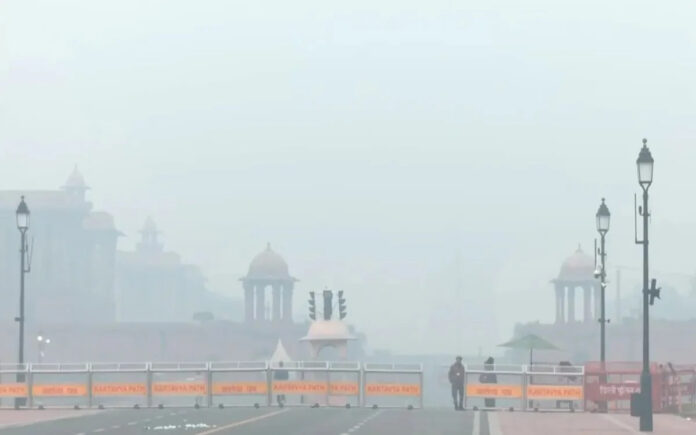New Delhi: Air quality in New Delhi is expected to deteriorate further this week as Diwali celebrations bring an influx of fireworks, potentially offsetting recent reductions in pollution from farm fires. Delhi authorities issued warnings on Tuesday, as environmental officials predict that the city’s air quality will suffer from the increased smoke associated with festival fireworks.
Delhi’s Persistent Pollution Problem
New Delhi, recognized by Swiss-based IQAir as the world’s most polluted capital for four consecutive years, ranked as the second-most polluted city globally on Tuesday, behind Lahore in Pakistan. The annual practice of burning crop stubble, commonly associated with harmful seasonal pollution, has decreased this year. However, Delhi Environment Minister Gopal Rai emphasized that firecracker emissions still pose a significant threat, saying, “The incidents of stubble burning are decreasing, but … the smoke created by firecrackers needs to be controlled.”
Stubble burning in the nearby states of Punjab and Haryana—a post-harvest practice for preparing fields for wheat planting—has long contributed to Delhi’s toxic smog in winter, leading to school closures and construction restrictions. This year, farm fire incidents have dropped by 35% in Punjab and 21% in Haryana compared to 2023, according to the agriculture ministry. Despite these declines, illegal firecracker use continues to pose significant pollution risks during Diwali, which runs from Wednesday to Friday.
Forecasted Air Quality Decline During Diwali
Delhi’s air quality index (AQI) measured 273 on Tuesday, far above the ‘good’ level of 50, and it is expected to worsen significantly during Diwali. The earth sciences ministry anticipates AQI levels between 301 and 400, categorized as ‘very poor,’ but warns levels could spike to ‘severe’ (401–500) due to the combined impact of firecracker emissions and waste fires. The ministry projects air quality to remain in the very poor to severe range for six days, starting Saturday.
Data from the earth sciences ministry reveals that crop stubble burning contributed only 3% to the region’s pollution as of Monday, down from 16% the previous Wednesday, with vehicle emissions and other sources making up the larger share. Last week, the Supreme Court reiterated its call for authorities in Delhi and nearby states to take urgent action against pollution, stressing that a clean environment is a “fundamental right”.



